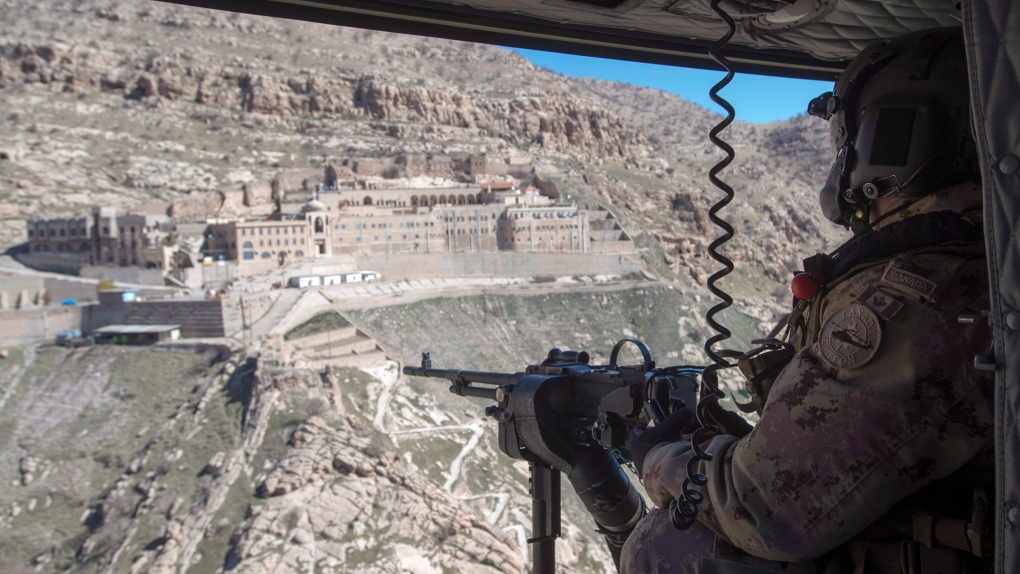
OTTAWA – Canada is extending a scaled-down version of its military mission in Iraq and the Middle East for another two years.
Defence Minister Anita Anand announced the extension Monday afternoon, before the mandate for the mission known as Operation Impact was set to expire on Friday.
The latest extension comes more than eight years after Canada first deployed troops to the region in October 2014 as the Islamic State militant group threatened to take over Iraq and Syria.
The mission has evolved numerous times over the years, previously including fighter jets, transport and surveillance aircraft, helicopters and military trainers and special forces troops.
But it has also shrunk in size and prominence as concerns about ISIL have receded while other crises and threats such as Russia, China and the COVID-19 pandemic have emerged.
Defence officials say the number of Canadian troops is being scaled back further, with the military planning to have around 150 troops in the region, which is half the current number.
Anand says Canada will continue deploying military trainers to Iraq, Jordan and Lebanon as part of the extension, while providing transport and logistical support to allies out of Kuwait.
The anti-ISIL mission has largely slipped from public view, but it has seen its share of controversies over the years. Those include questions about whether Canadian troops were in combat, and concerns about the screening of Iraq troops trained by Canada.
The Liberals were also criticized for withdrawing Canadian fighter jets after taking power in 2015, while Canada’s partnership with Iraq’s Kurdish minority put this country into an awkward position when faced with Kurdish calls for independence from Iraq.
One Canadian soldier was killed while serving on Operation Impact. Sgt. Andrew Doiron died after Kurdish forces mistakenly shot the Canadian special forces member. Three other Canadians were injured in the “friendly fire” incident.